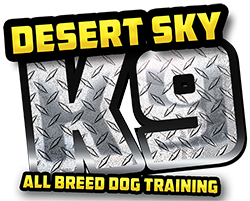BEHAVIOR MODIFICATION
Dog Separation Anxiety
Dealing with dog separation anxiety
Many dog owners report that their dogs show signs of separation anxiety. After all, dogs are man’s best friend, and they want to go wherever you go! Most puppies and dogs learn that when you leave, you’ll eventually come back. Others, however, become extremely agitated when their owner leaves them. They may bark or whine excessively, inappropriately urinate, or even become destructive. You’ve likely heard—or even lived!—horror stories where dogs chew up baseboards, destroy sofas, or worse. Imagine living in an apartment and receiving constant complaints from your neighbors about your dog’s excessive barking!
For other dogs, the problem may be less severe. Your dog may not want to let you out of his sight or become agitated when you get ready to leave the house. Of course, you can’t take your dog with you everywhere you go. Addressing this issue early will help reduce your dog’s anxiety and help maintain a sense of balance in your life.
Training and coping strategies can help you desensitize your dog to your departure. Some people find it effective to give their dog a special treat each time they leave the home. They take the treat back when they return, which helps the dog associate the departure with something rewarding for him. It can also be helpful to make your departure and return as low-key as possible. That means not exciting your dog excessively when you return to the house. This sends the message that you coming and going is not a big deal—and you’ll always come home.
What if my Dog’s Anxiety is More Severe?
The training methods and coping strategies described above may be helpful for dogs with mild or moderate separation anxiety. However, dogs that overreact when their owner leaves may require additional, specialized training. Of course, lots of owners don’t know where to begin with helping their dog cope. Even when they apply the “simple solutions” consistently, their dog still freaks out when left alone. He may tear up pillows, go to the bathroom inside, or become destructive in other ways. In those cases, it’s best to have a professional step in for training support.
Next Steps
Overcoming Dog Separation Anxiety
At Desert Sky K9, we assess each dog individually to identify its triggers and the type of positive reinforcement that works best. Many dog owners seek professional training as a last resort, convinced their dog won’t change, but the approach here is that every dog can be helped. The goal is not to change a dog’s personality but to work with it to find new outlets and coping methods for their stress. This process also involves close collaboration with the owner to ensure consistency and that the lessons learned at the training facility are effectively applied at home.
The Desert Sky K9 team has helped countless dog owners who want to improve their relationship with their dogs. Contact us today to find out how we can help you!

